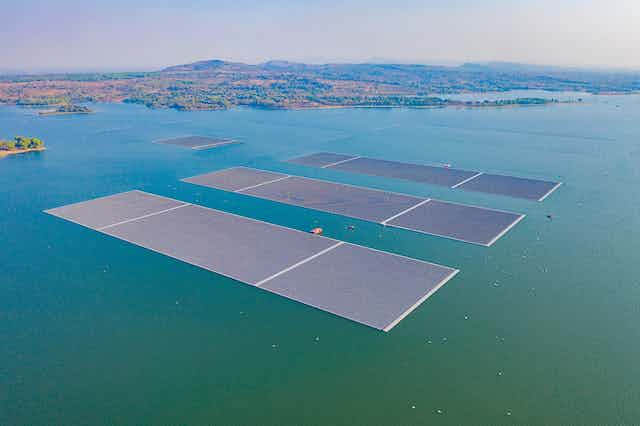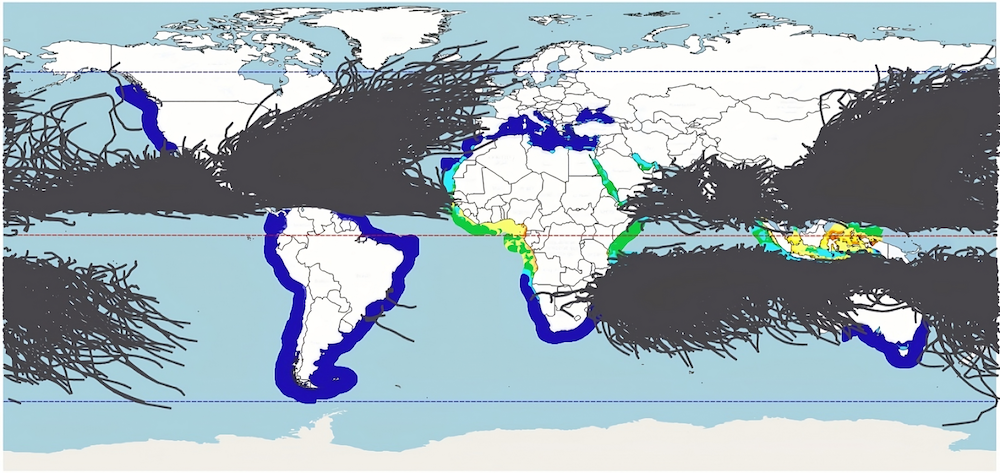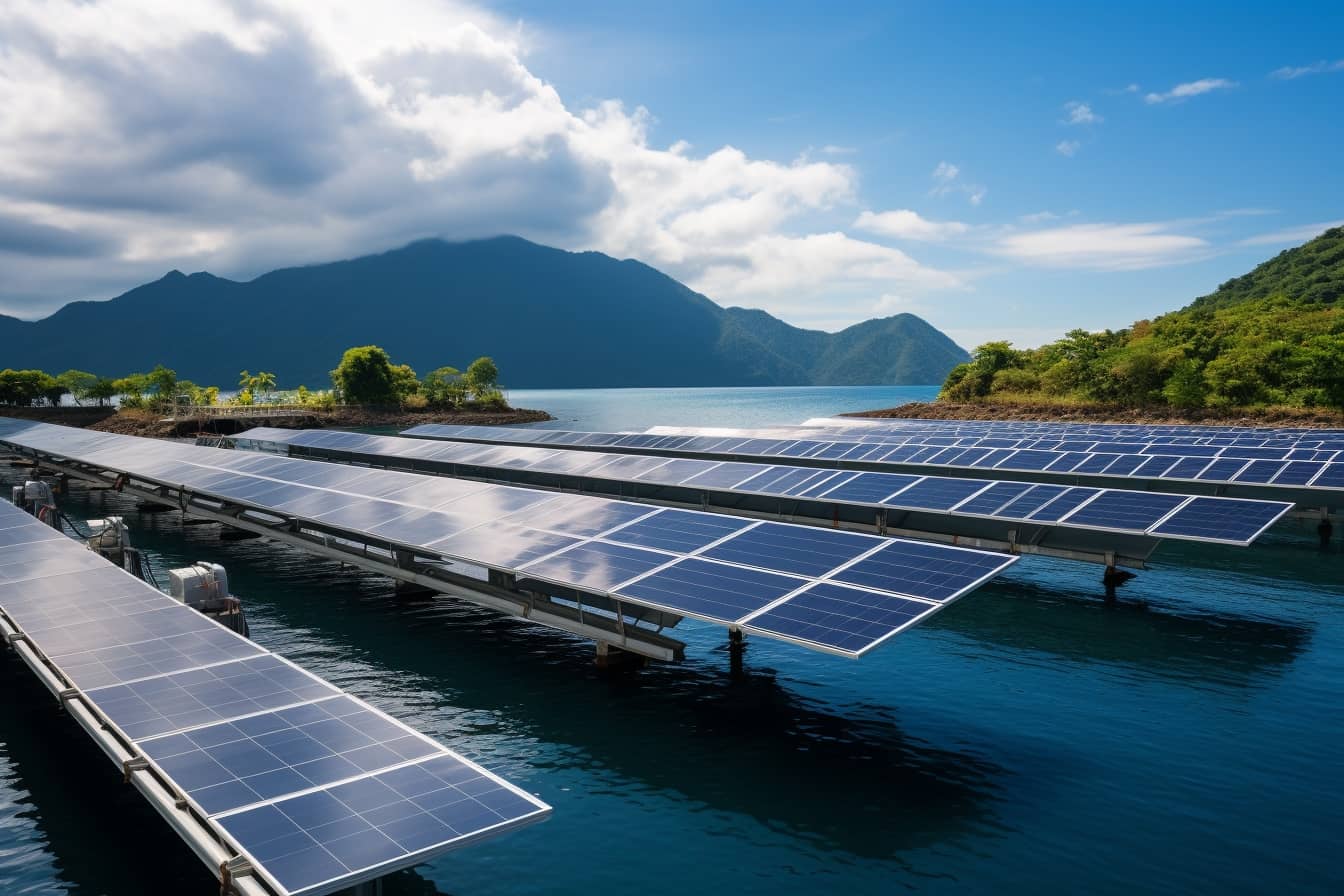A vast ocean, with calm and crystalline waters, kissed by the relentless sun of the equator. In this idyllic setting, futuristic structures emerge: floating solar panels, stretching to the horizon like a glittering carpet.
These panels are not just engineering marvels, but they represent a promise: that of a future powered by clean and inexhaustible energy. And the protagonist of this story may not be a technologically advanced country, but Indonesia, an archipelago that could revolutionize the way we think about energy.

The energy of the future floats on water
Among the solutions to address the growing energy demand, solar energy is the one that most stimulates our collective imagination. And what better place to capture this energy than near the equator, where the sun shines at its brightest?
Indonesia, with its privileged geographical position and its calm waters, emerges as an ideal candidate to exploit this resource. A new study shows that this archipelago alone could generate around 35.000 terawatt-hours (TWh) of solar energy per year. To be clear, it is more than the current global electricity production, which stands at around 30.000 TWh per year.
Solar floating at the equator: an ocean of opportunities
Although most of the world's oceans are prone to storms, some regions of the equator are surprisingly calm. This means we wouldn't need expensive engineering structures to protect the floating solar panels. The high resolution heat maps reveal that the Indonesian archipelago and western equatorial Africa near Nigeria have the greatest potential for these on-water solar structures.

We look to the future: by 2050, the global economy will be largely decarbonized and electrified, supported by enormous amounts of solar and wind energy. But countries like the Nigeria andIndonesia, with their high population densities, may have limited space for solar energy. That's where floating solar power comes in.
Not to mention that this type of plant can also be positioned on lakes and internal tanks: this is why it has such high potential, and is already growing rapidly.
A bright future, despite the challenges
Like any new technology, of course, there are challenges to face. Salt corrosion and marine fouling are legitimate concerns: however, with innovation and research, these challenges can be overcome. And, despite these obstacles, floating solar power could become a key component of the energy mix for countries with access to the calm seas of the equator.
Indonesia is not just a tropical paradise, but a living laboratory for the future. This archipelago nation could well become the beacon that guides the rest of the world towards an era of clean energy, where the sun finally lights the path to sustainability.


